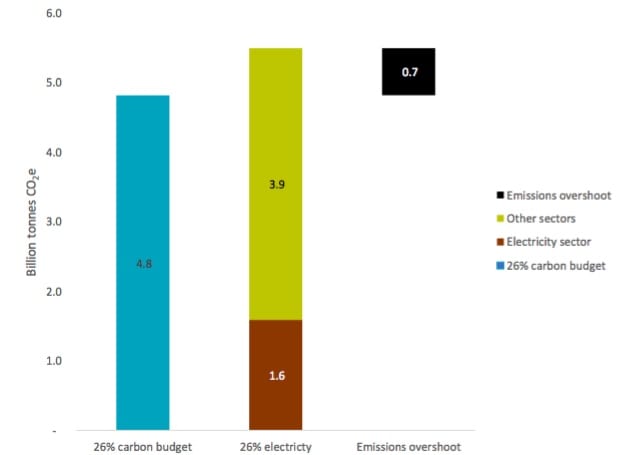The recently-created Energy Security Board has proposed the National Energy Guarantee (the Guarantee) as a policy to limit carbon pollution from the electricity sector while at the same supporting reliable and affordable electricity supply.
The Guarantee is supported by the Turnbull Government.
The setting of the electricity emissions target is one of the most critical components of the Guarantee. How this is set and defined by the Commonwealth government will determine whether Australia is actually playing its proportional role in tackling global warming.
Specifically, the electricity emissions target will strongly influence whether the nation meets Australia’s national emissions targets, whether the mechanism will boost renewable energy investment, and whether future governments are able to meet the international commitments we have made or will make in the future.
The currently proposed electricity sector emissions reductions target from the Commonwealth is woefully inadequate. This is not unique to the Guarantee.
Any national policy underpinned by the Australian government’s current 2030 target of 26-28 percent below 2005 levels would fail to appropriately address climate change because it is not consistent with the objectives of the Paris Agreement. Australia’s current target is also among the weakest of any advanced economy.
If the electricity sector reduces emissions by only 26 percent by 2030, Australia would overshoot its current national target by around 700 million tonnes.
This is more than three times the amount of carbon pollution that the electricity sector emitted in 2017.
To achieve the overall national target, other sectors like manufacturing, transport and agriculture would need to reduce emissions by this amount between 2021 and 2030. (Se graph above).
There is currently no plan to achieve meaningful emissions cuts in any of these sectors.
Outside the actual strength of the target itself, core issues in defining the electricity target include:
– Ensuring the emissions target is consistent with Australia’s international undertakings: Under the Abbott government, Australia has committed internationally to limit total cumulative emissions between 2021 and 2030; not just to achieve a 26-28 percent reduction on 2005 levels by 2030.
If emissions reductions are delayed or “back ended” in the electricity sector, then more disruptive action will be required later to meet Australia’s cumulative national target.
For example, delaying action in the electricity sector until 2025 and then trying to achieve the proposed sectoral target would mean other sectors would need to take much more dramatic action if the overall target is to be achieved.
In this scenario, between 2021 and 2030, manufacturing, transport and others would need to find emissions reductions equivalent to nearly five years of the electricity sectors current pollution levels.
– No backsliding on emissions targets: Under the Paris Agreement, each new emissions reduction target that countries set must be a “progression” from their previous target.
To reflect this, the national legislation that defines the electricity sector target should include a provision that explicitly states that all future targets must be stronger than the previous one.
– The notice period to change the target should be three years not five: Setting a three-year notice period to change the target would allow for more regular, smaller adjustments rather than less regular but larger adjustments to emissions trajectories.
For example, if the ALP is elected federally in 2019 and had to give five years notice to change the target, then emissions reductions in the second half of the decade would need to decline sharply to achieve their emissions reductions goal of 45 percent by 2030.
This rate of emissions reductions would be around 15 percent a year. This would be historically unusual, disruptive to the economy and could threaten the ability of the government to achieve its Paris commitments.
However with three years notice, the rate of reductions required would be halved and are within the range of reductions achieved by a number of countries in their electricity sectors in recent years.
Erwin Jackson is policy adviser with Environment Victoria.











